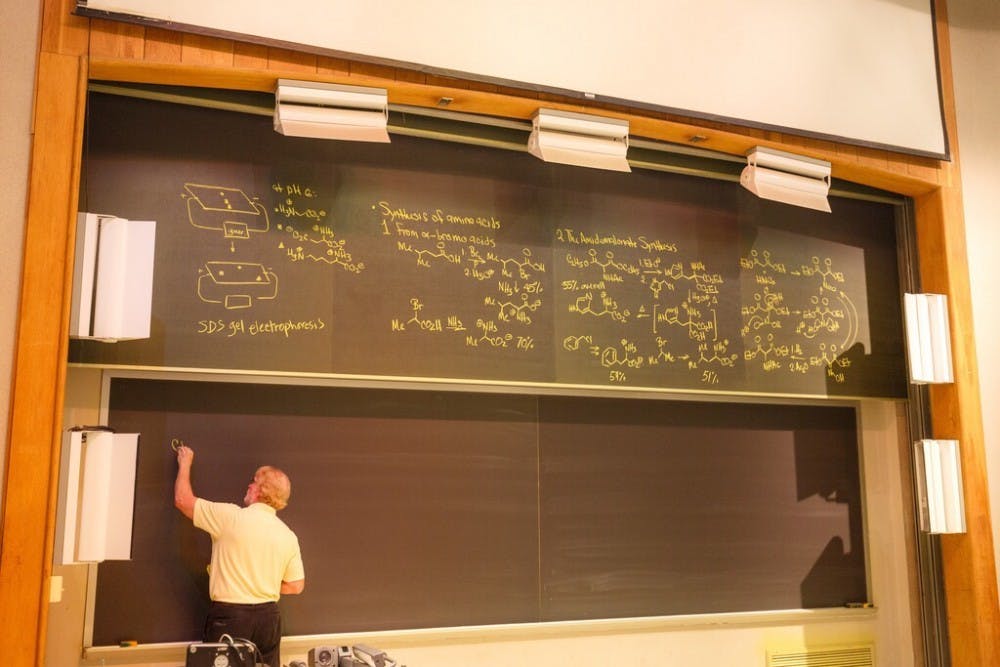A primary purpose of the University is to enrich the minds and lives of its students, and while many aspects of the University certainly contribute to this, faculty plays an invaluable role in fulfilling that mission. The faculty at the University excels at instilling a love of learning in their students, as they attempt to ignite a passion in students for the subject they have dedicated their lives to. These faculty members are also tasked with preparing students to enter a vast and globalized world where they must have the skills to apply that they have learned from their four years of studies.
Professors play an essential role in the cognitive development of their students. They influence, and in many ways mold, the ways in which their students view the world around them. However, how can students be adequately prepared to enter a global job market if they have not been sufficiently exposed to various points of views?
The diversity among the faculty at the University is astoundingly low in comparison to the diverse world in which we live. Last year, 77 percent of the faculty at the University were classified as White American, with only about four percent of the faculty being African-American and about three percent being Hispanic American. These numbers are extremely troubling, and must be improved on.
As diversity throughout the student body continues to grow, the diversity among faculty members should not remain stagnant. As diversity expands in the student body, it is becoming even more important for different perspectives to be better represented by the University’s staff.
Increasing the diversity of staff can have some tangible benefits. According to the Association of American Colleges and Universities, “... all students are better educated and better prepared for leadership, citizenship, and professional competitiveness in multicultural America and the global community when they are exposed to diverse perspectives in their classrooms...” Researchers have found that diverse groups are more creative, innovative and productive compared to homogenous groups. Groups exposed to a minority viewpoint experienced a “stimulated discussion of multiple perspectives and previously unconsidered alternatives.” Researchers thus arrived at the conclusion that diversifying faculty will enhance teaching and research.
Additionally, as our society continues to face an increase in white supremacy and with media sources shedding more light on white supremacist incidents, it becomes even more essential that students learn to empathize with people from different walks of life who can emphasize different perspectives. College is a time for students to be able to explore different viewpoints and opinions, and they deserve the opportunity to build relationships with professors from different walks of life in order to become more accepting of different cultures.
Furthermore, while universities endorse diversification, not much is being done to enforce these plans to diversify. The University has attempted in the past to diversify faculty by establishing associate or assistant deans for diversity within the college, professional schools, and graduate programs, who are charged with identifying and recruiting faculty and graduate students of color. These programs did lead to an increase in the number of African-American tenure hires, however, the number of minority faculty members remains startlingly low.
The University also attempted to start a cluster hiring program for the 2017-18 academic year. According to its webpage, "A cluster search seeks multiple faculty members from across disciplines who are working in a particular interdisciplinary field with the potential for broader social impact." The page claimed the program had “the potential to expand the University’s diversity and to reduce discipline- and institution-generated barriers to research.” Although this sounds like a good plan, it remains to be seen what impact it has on the diversity of the faculty. However, a new plan is being put in motion at the University in order to increase diversity throughout the faculty.
Student Council President Alex Cintron, has suggested that student input be institutionalized in the faculty hiring process at the University. Cintron said he was influenced to do this in a recent column for The Cavalier Daily where he stated, “It shouldn’t take until my third year to be taught by a professor who looks and sounds like me.” This observation is not lost on many students who are still waiting to be taught by somebody who looks like them.
If Cintron’s idea is implemented, it has the potential to change the faculty hiring process for the better, and faculty will begin to reflect the diverse needs of an increasingly diverse student body. Cintron’s plan is admirable, and hopefully it will lead the University into a new era of diversity, and other initiatives like it in the future, because as the world is changing so must our University.
Izabella Forero is an Opinion Columnist for The Cavalier Daily. She can be reached at opinion@cavalierdaily.com.





